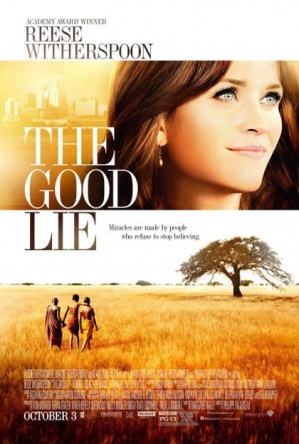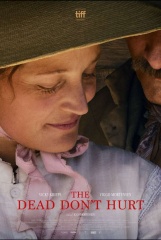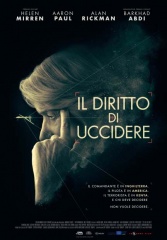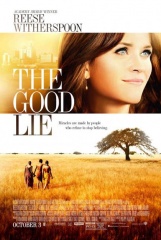|
|
THE GOOD LIE
Toronto Film Festival 2014 - USA: Dal 3 OTTOBRE - PREVIEW in ENGLISH by PETER DEBRUGE (www.variety.com)
(The Good Lie; USA 2014; Drammatico; 110'; Produz.: Alcon Entertainment/Black Label Media/Blue Sky Films (Kenya)/Good Lie Productions/Imagine Entertainment/Reliance/Reliance Entertainment; Distribuz.: Warner Bros. Pictures Italia)
 See SHORT SYNOPSIS
See SHORT SYNOPSIS
|
Titolo in italiano: The Good Lie
Titolo in lingua originale:
The Good Lie
Anno di produzione:
2014
Anno di uscita:
2014
Regia: Philippe Falardeau
Sceneggiatura:
Margaret Nagle
Cast: Reese Witherspoon (Carrie Davis)
Corey Stoll (Jack)
Thad Luckinbill (Matt)
Sarah Baker (Pamela Lowi)
Sharon Conley (Erin Sullivan)
Nancy DeMars (viaggiatrice in aeroporto)
Mike Pniewski (Nick Costas)
Maria Howell
Arnold Oceng (Mamere)
Ger Duany (Jeremiah)
Joshua Mikel (Dave)
Parisa Johnston (donna in Sari)
Kaitlyn Ervin (la ragazza del soldato)
Kenny Alfonso (ufficiale di polizia)
Sahlima (Najah)
Musica: Martin Leon
Costumi: Suttirat Anne Larlarb
Scenografia: Aaron Osborne
Fotografia: Ronald Plante
Montaggio: Richard Comeau
Casting: Mindy Marin
Scheda film aggiornata al:
15 Settembre 2014
|
Sinossi:
IN BREVE:
Storia di un giovane rifugiato della guerra civile sudanese che vince una lotteria per il trasferimento negli Stati Uniti con altri tre ragazzi abbandonati. Sviluppano una strana amicizia con un'esuberante donna americana che è stata incaricata di aiutarli, ma il giovane lotta per adattarsi alla sua nuova vita e contro il senso di colpa verso il fratello che ha lasciato indietro.
IN DETTAGLIO:
MamÊre e Theo sono i figli del capo di un villaggio nel sud del Sudan. Quando il villaggio viene attaccato dalle milizie del nord e i suoi genitori vengono uccisi, Theo è costretto a ricoprire la carica di capo e a condurre un gruppo di giovani superstiti, tra cui la sorella Abital, lontano da quel luogo. Il destino ha però in serbo altri pericoli. Terminando l'odissea al campo profughi di Kakuma in Kenya, il gruppo ha modo di incontrare altri bambini in fuga e di stringere amicizia con il tredicenne Jeremiah, che a dispetto dell'età è già un uomo di fede, e con Paul, le cui abilità sono essenziali per la sopravvivenza. Tredici anni dopo, i giovani ormai diventati adulti lasciano il campo ed arrivano in Kansas, dove incontrano Carrie Davis (Reese Witherspoon), un'impiegata del collocamento che deve aiutarli a trovare un lavoro. PoichÊ il compito non è facile, Carrie chiede l'aiuto del suo capo Jack (Corey Stoll) per tentare di aiutare a ricostruire la vita a dei ragazzi che sembrano provenire da un altro mondo e che hanno una cultura totalmente differente.
SHORT SYNOPSIS:
A Sudanese refugee is taken in by a straight-talking American woman in their new home in the United States.
Commento critico (a cura di PETER DEBRUGE, www.variety.com)
|
THOSE EXPECTING THIS TO BE REESE WITHERSPOON'S 'THE BLIND SIDE' MAY BE SURPRISED TO FIND THIS PLAY-IT-SAFE DRAMA (RIGHTLY) FOCUSED ON ITS SUDANESE REFUGEES
A good lie, according to Huckleberry Finn, is a prevarication where the ârightnessâ of the outcome excuses the âwrongnessâ of having fibbed in the first place. The good lie of âThe Good Lie,â therefore, is that this true(ish) story of Sudanese refugees emigrating to America is a Reese Witherspoon movie, when in fact, she doesnât show up until 35 minutes into an uplifting and overly earnest picture that isnât really about her character at all â nor should it be. But if that mistruth helps spread the word about the Sudanese situation, earning Warner Bros. a pretty penny in the process, how wrong can it be?
The thing is, we miss Reese. Over the past decade, the actress has grown too scarce on the bigscreen, and though |
|
âWildâ promises to be her big awards vehicle this year, the advertising campaign for âThe Good Lieâ suggests a chance to see Americaâs sweetheart in feisty âErin Brockovichâ or âThe Blind Sideâ mode, demanding, âWho do I have to screw around here to see a goddamn immigration supervisor?â in her most sexually empowered redneck drawl.
That happens, by the way, but itâs hardly typical of director Philippe Falardeauâs sensitive yet play-it-safe approach. Surely itâs for the best that such white-girl-to-the-rescue theatrics account for just one scene in a movie that otherwise has the good sense to focus on four Sudanese refugees offered shelter in America. Part of a resettlement effort of nearly 3,600, dubbed the âLost Boys of Sudan,â these four arrive in the U.S. 13 years after militia attacks left them orphaned and homeless, and one year before 9/11 forced authorities to suspend the program out of anti-terrorist concerns.
Though the |
|
characters themselves are fictional, screenwriter Margaret Nagle (âBoardwalk Empireâ) based them on the experiences of real Sudanese refugees, opening the film with a group of six children, brought together by violence, who walk hundreds of miles in search of safety. Coming off his more confrontational 2012 foreign-language Oscar nominee âMonsieur Lazhar,â Canadian director Falardeau presents the Sudanese trauma with kid gloves, as if trying to protect young Western audiences from getting too vivid an idea of what they went through.
Filming for his first time in English (as well as the Nuer and Dinka dialects) and using Sudanese actors with actual ties to the events, the helmer rejects the gritty pseudo-docu staging of pics like âHotel Rwandaâ or the hallucinatory brutality of this yearâs âWhite Shadow.â Falardeau actually spent time filming in Sudan for a completely different project back in 1994 before being forced to evacuate by the U.N., but he |
|
consciously decides not to rub our noses in tarted-up awfulness, opting for steady-footed lensing and subdued music, then trusting our imaginations to fill in the horrors.
This also conveniently allows the pic to bring back characters we pessimistically might have assumed to be dead. The family-like group of six loses two members before reaching the refugee camp, and is forced to split up further after passing through customs in New York. The three men â Jeremiah (Ger Duany), Paul (Emmanuel Jal) and default âchiefâ Mamere (Arnold Oceng) â are given an apartment to share in Kansas City, Mo., while their sister, Abital (Kuoth Wiel), is sent off to Boston. When the refugeesâ sponsor drops the ball, it falls to Witherspoonâs character, an employment counselor named Carrie, to meet them at the airport.
Faced with culture shock, all these men struggle with different issues, from drug abuse to incompatible values (Jeremiah rather poignantly |
|
resigns from his supermarket stocker job because he canât bear to let good produce go to waste). But Mamereâs dreams take precedence â first, to study medicine and become a doctor, and second, to reunite the groupâs splintered family, whatever the cost. Along the way, the pic canât resist a few easy-chuckle âComing to Americaâ-style fish-out-of-water gags: The three men are startled when the apartment phone rings, for instance, and Mamere doesnât realize heâs offending when he gives Carrie the nickname âYaardit,â which roughly translates to âgreat white cow.â
Mamere means this as a term of respect, and the movie takes great care to show how appreciative the refugees are to be given such an opportunity, even though the adjustment can be difficult. It also reveals how thick-skinned Americans like Carrie and her boss Jack (Corey Stoll) have been compelled to rearrange their priorities after interacting with those in such dire |
|
need of support â the angle that no doubt justifies Witherspoonâs poster-girl status. And letâs admit it: Sheâs the reason most people will see the movie anyway. Otherwise, theyâd do better to seek out docus âGod Grew Tired of Usâ or âThe Lost Boys of Sudan,â or track down Warren St. Johnâs stirring memoir, âOutcasts United,â about coaching an all-refugee youth soccer team in Clarkston, Ga. |
|
|
|
|
|
|
|
|
|
|
|
|
|
|
|
|
|
|
Links:
Galleria Fotografica:
1
Fatal error: Uncaught Error: Call to undefined function str_starts_with() in /web/htdocs/www.celluloidportraits.com/home/util.php:223
Stack trace:
#0 /web/htdocs/www.celluloidportraits.com/home/schedamovie.php(775): makeLinkVideo()
#1 {main}
thrown in /web/htdocs/www.celluloidportraits.com/home/util.php on line 223
|









